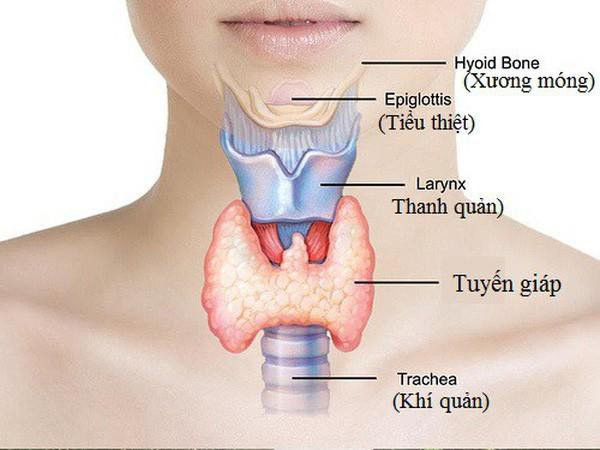How dangerous is the disease that Miss Pham Huong has?
The beauty queen said the disease affects her health and psychology so she decided to take time to go to the US for treatment.

Sharing about this, Pham Huong said: “During the past time, I have devoted a lot of effort to work. Currently, I want to spend more time on my health, life as well as my family members. Regarding the disease, although it is not too dangerous, it makes my health poor and I often have minor pains, so I am determined to completely treat it. At the age of 27, I want to live more for my family and myself.”
It is known that currently there are about 200 million people in the world with thyroid disease. Thyroid disorders can affect all ages and both sexes, with women being 10 times more likely to be affected than men. About 50% of patients are not diagnosed because their symptoms are not specific.
According to experts, thyroid dysfunction affects the normal functioning of the body. Patients with hyperthyroidism may lose weight rapidly, be afraid of heat, sweat a lot, have a rapid heartbeat, be restless, have mood swings, and be irritable. If left untreated, it can lead to a thyroid storm, which is life-threatening.
Thyroid disease symptoms are often nonspecific and easily confused with fatigue in a busy life, so they are often overlooked.
 Below are the signs of thyroid disease:
Below are the signs of thyroid disease:
Weight change
When you have hyperthyroidism, the hormones produced continuously will make you feel hungry all the time, but even if you eat a lot, you still lose weight. With hypothyroidism, you do not feel like eating and even if you do not eat, you still gain weight. So if your weight becomes difficult to change despite trying to reduce or increase your intake, you may have thyroid disease. You should know that this is a symptom of thyroid disease and be ready to see a consultant as soon as possible.
Goiter/Swollen neck
This is the most obvious manifestation of thyroid disease. Basically, thyroid diseases such as goiter or thyroiditis will always be accompanied by a clear symptom of a swollen neck or goiter. Goiter is always accompanied by iodine deficiency, difficulty breathing or talking.
Muscle and joint pain
Joint and muscle pain is also a symptom of thyroid disease that shows that your thyroid is having problems. For hypothyroidism, you will feel numbness and tingling in your arms due to lack of signaling hormones, leading to slow brain sending information to the muscles. For hyperthyroidism, the patient is very susceptible to stiffness in the joints and coordination of the limbs.
Hair and skin changes
If something is wrong with your thyroid, it will show up in your hair and skin. When you have hypothyroidism, your hair will be brittle, dry and break easily, and your skin will be dry and flaky. This is because the hormone imbalance makes it difficult for hair to grow. With hypothyroidism, the patient will easily lose hair and hair, and the skin will become especially sensitive.
Reduced libido
Thyroid diseases are directly related to hormones, so treatment is needed as soon as the disease is detected. If the disease develops for a long time, it will cause an imbalance of estrogen, causing the patient to lose desire and become infertile. Thyroid disease especially affects menstruation and ovulation.
Changes in cholesterol
People with thyroid disease often have very unstable blood cholesterol levels, so if you are not taking cholesterol medications or are being treated for a related condition and your cholesterol levels are still high, you should probably see a doctor right away.
Intestinal disease
Thyroid hormones basically affect almost every part of the body, the digestive system is no exception. Therefore, people with thyroid disease are very susceptible to diarrhea or stomach pain. In particular, people with hypothyroidism are prone to constipation while people with hyperthyroidism often have diarrhea and stomach pain.
High blood pressure
Thyroid hormones have a major impact on cardiovascular health, stimulating the heart rate and blood pumping, which in turn leads to fluctuations in blood pressure. So if you have a thyroid disorder, your blood pressure will be very erratic. Hypothyroidism causes blood pressure to rise quickly, while hyperthyroidism causes blood pressure to slow down.
Tired
Thyroid hormones are an important part of the growth and promotion of muscle activity, so if you have thyroid problems, it will cause fake hormones, so the muscles will not be promoted and cause fatigue. In particular, sometimes hyperthyroidism can also cause you to lose sleep or sleep but not feel like you have enough sleep.
Not to mention, if there is a problem with the thyroid, low hormone levels will lead to low serotonin levels, creating a feeling of disinterest and fatigue at work.
